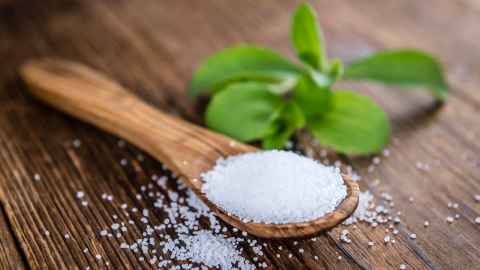Can New Zealand ever kick its sweet tooth?
24 September 2021
Non-sugar sweeteners such as stevia are on the rise as manufacturers respond to health concerns linked to the consumption of sugar.

A new study from the University of Auckland shows sweeteners were used in 5 percent of packaged food and beverages in 2019, up from 3 percent in 2013.
Beverages, special foods like fitness and diet products, and dairy products are the items most likely to contain the sweeteners.
It all sounds good to those us of looking to avoid excess sugar. However, for researchers, the lingering question is: How will New Zealand lose its unhealthily sweet tooth if we’re constantly exposed to sweet tastes?
Excess sugar consumption is strongly associated with higher body weight, tooth decay, type 2 diabetes and cardiovascular disease risk factors such as raised blood lipids and high blood pressure.
“People get used to craving sweetness and a sugar hit – that’s what we need to change,” says Dr Leanne Young, a Research Fellow in the School of Population Health in the Faculty of Medical & Health Sciences.
Sodium content has been dropping gradually in bread, helping people to slowly adjust their tastes to less salt.
“A similar change is needed to reduce the overall sweetness of foods, to help the nation slowly adjust its palette,” says Dr Young.
Despite government recommendations for people to choose and prepare foods and beverages with little or no added sugar, sugar intake in New Zealand exceeds World Health Organization recommendations, write medical student Rachel Nunn, Dr Young and Professor Cliona Ni Mhurchu in the paper just published in the journal Nutrients.
Media contact
Paul Panckhurst | media adviser
M: 022 032 8475
E: paul.panckhurst@auckland.ac.nz